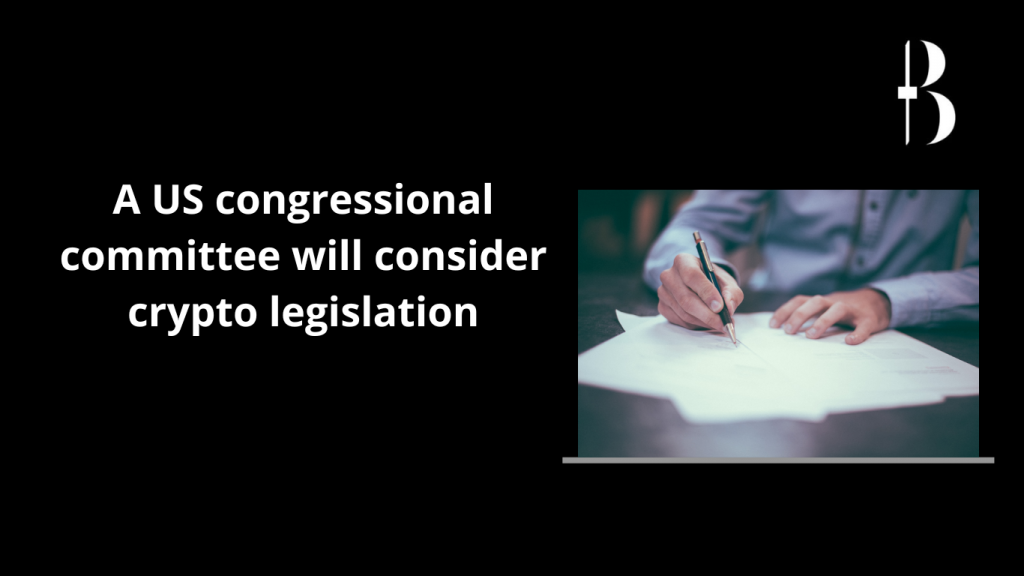White House (Reuters) – This week’s decision by a significant congressional committee on three proposals establishing a regulatory framework for cryptocurrencies marks a significant step forward for Capitol Hill in its efforts to formalize federal control over the digital asset market.
Since investors lost money last year as a result of the abrupt failures of Celsius Network, Voyager Digital, FTX, and other businesses, the cryptocurrency industry has been targeted by regulators.
A bill that would specify whether a cryptocurrency is a security or a commodity and another that would establish a regime to oversee stablecoins—digital tokens typically backed by traditional assets like the U.S. dollar—are among the pieces of legislation the House Financial Services Committee is scheduled to consider.
The markups are the first time crypto regulatory bills will be put to a vote in Congress, a victory for crypto lobbyists who have pushed lawmakers to provide regulatory clarity for the industry. Markups are where legislation is debated and brought to a vote, paving the way for a full vote by the House of Representatives.
However, this is by far the most significant legislative event that we’ve had, according to Kristin Smith, CEO of the Blockchain Association. “Obviously, we’ve had some significant decisions come from the courts in the past,” she added.
It is still unclear whether the proposals will receive any Democratic backing, which many believe is essential to their chances of eventually becoming law.
The Democratic-controlled Senate, where Sherrod Brown, chair of the Senate Banking Committee, has stated he is dubious whether more legislation to regulate cryptocurrency is necessary, would also be a hurdle for the proposals.
The Republican committee chair, Representative Patrick McHenry, has stated that advancing a crypto market structure bill is his top priority. This legislation would increase the Commodity Futures Trading Commission’s (CFTC) oversight of the cryptocurrency industry while defining the Securities and Exchange Commission’s (SEC) purported authority, as many crypto advocates criticize the SEC for its perceived overreach. That bill is anticipated to be discussed by his committee at a markup on Wednesday, and by the House Agriculture Committee on Thursday.
The legislation has inspired many in the cryptocurrency sector, who believe that with Democratic support, it may have a chance of passing the Senate.
The CEO of the DeFi Education Fund, a lobbying organization specializing in decentralized finance, Miller Whitehouse-Levine, stated that anything that is to be persistent “is going to need some bipartisan backing.”
DETAILS ON TOKENS
The SEC has slowly asserted its control over the cryptocurrency business despite the fact that the majority of cryptocurrencies were initially operating in legal limbo and weren’t subject to its investor protection regulations. When the SEC sued cryptocurrency exchanges Coinbase (NASDAQ:COIN) and Binance for failing to register some crypto assets, that effort intensified last month. The two contest the charges.
The majority of cryptocurrency businesses contest the SEC’s authority, and they have lobbied Congress in recent months to pass legislation emphasizing that cryptocurrencies are more closely related to commodities than securities.
It is unknown which Democrats, including Representative Maxine Waters (NYSE:WAT), the top Democrat on the Financial Services Committee, will support the market structure measure. Requests for comment from a Waters spokeswoman went unanswered.
A plan that would have the Federal Reserve establish specifications for the issuance of stablecoins while maintaining the authority of state regulators is also scheduled for discussion by lawmakers on Thursday.
A change was made to the legislation in response to worries raised by some Democrats, notably Waters, that stablecoin issuers would want to be governed by state law in order to avoid tougher regulation.
A federal stablecoin regime is “not essential,” according to McHenry, who added that there are state frameworks currently in place in an interview with Politico last month. Nevertheless, McHenry expressed optimism that he and Waters would reach an agreement on the bill.
Requests for a response from a McHenry representative went unanswered.

